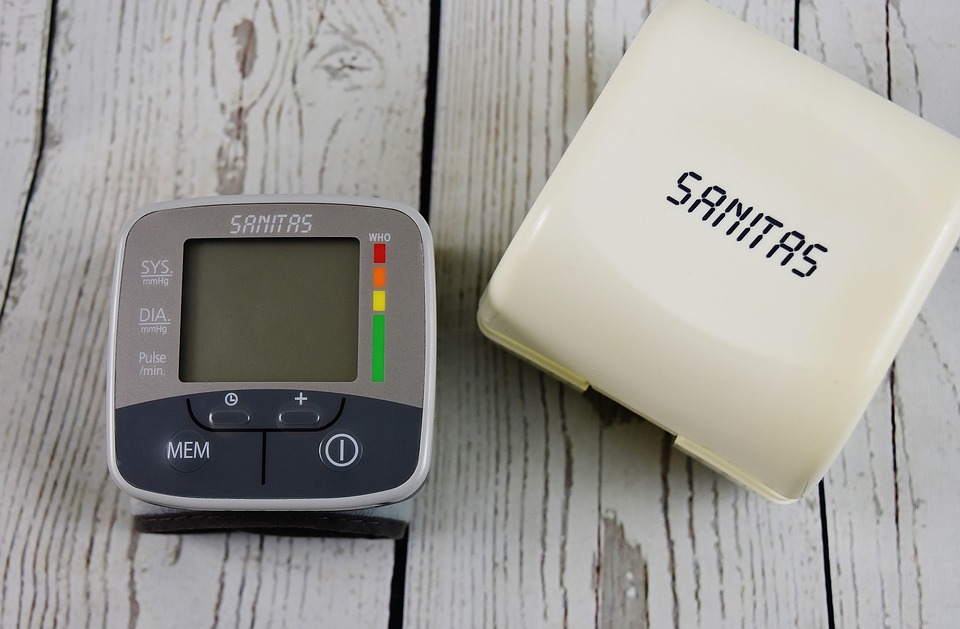Pinpoint Healing: How Pressure Points Can Alleviate Chronic Pain
Introduction
Chronic pain affects millions of people worldwide, severely impacting their quality of life. Traditional pain management methods often include medications, physical therapy, and sometimes invasive procedures. However, an increasing number of individuals are turning to alternative techniques to manage their pain. One such method is the use of pressure points, a concept deeply rooted in ancient medical practices, particularly acupuncture and acupressure.
In this article, we’ll explore the philosophy behind pinpoint healing, how pressure points work, the scientific basis for their effectiveness, and various techniques you can use at home to alleviate chronic pain.
Understanding Chronic Pain
Chronic pain is defined as any pain that persists for more than three months. It can arise from various conditions, including arthritis, fibromyalgia, and nerve damage, or may exist with no identifiable cause. The perception of pain is complex and involves not only physical but also psychological components.
The Biological Mechanism of Pain
Pain is fundamentally a protective mechanism that alerts the body to injury or illness. However, in chronic pain conditions, this mechanism becomes dysregulated. Signals continue to be sent to the brain even after the initial injury has healed, resulting in persistent pain.
Psychological Factors
Chronic pain is often intertwined with emotional and psychological factors, such as stress, anxiety, and depression. These can not only magnify the perception of pain but can also contribute to its persistence.
The Philosophy of Pressure Points
Pressure points are specific locations on the body that can prompt a response when stimulated. They are a cornerstone of various traditional medicine systems, including Traditional Chinese Medicine (TCM) and Ayurveda.
Traditional Chinese Medicine
In TCM, the body is viewed as a holistic system where all parts are interconnected. Qi (energy flow) circulates through meridians, which are pathways in the body. Blockages in these meridians can lead to illness and pain. By applying pressure to specific points along these pathways, practitioners aim to restore the flow of Qi, promoting healing and alleviating pain.
Ayurveda
In Ayurveda, similar concepts exist, although the terminology is different. The energy pathways are referred to as “nadis,” and the pressure points are termed “marma.” Stimulating these marma points helps balance the three doshas—Vata, Pitta, and Kapha—leading to improved physical and emotional well-being.
The Scientific Basis
Recent studies have attempted to bridge the gap between traditional and modern medicine regarding pressure point therapy. Although the mechanisms are not entirely understood, some research suggests that stimulating these points can release endorphins, the body’s natural painkillers, and may influence the brain’s pain perception pathways.
Types of Pressure Points and Their Uses
While numerous pressure points exist, some are particularly effective for alleviating pain. Below are a few key pressure points along with their potential benefits:
1. LI4 (Large Intestine 4)
Located in the webbing between the thumb and index finger, this point is often used to relieve headaches, toothaches, and stress-related pain.
How to Locate and Use LI4:
- Location: Pinch the webbing between your thumb and index finger.
- Technique: Apply steady pressure for about 30 seconds to 1 minute while breathing deeply.
2. PC6 (Pericardium 6)
Located on the inner forearm, about two inches from the wrist, PC6 is commonly used to alleviate nausea, anxiety, and wrist pain.
How to Locate and Use PC6:
- Location: Measure two fingerbreadths from the wrist crease towards the elbow on the inner forearm.
- Technique: Use your opposite hand’s thumb to apply gentle pressure for 1-2 minutes.
3. SP6 (Spleen 6)
Situated just above the inner ankle bone, SP6 is thought to help with menstrual pain and digestive issues.
How to Locate and Use SP6:
- Location: Find the bony prominence on the inner ankle and move your hand approximately four finger widths up towards the knee.
- Technique: Apply firm pressure, massaging in a circular motion for 1-3 minutes.
Techniques for Home Practice
Acupressure
Unlike acupuncture, which uses needles to stimulate points, acupressure applies manual pressure through touch, making it easier and safer for self-administration.
Simple Techniques
- Finger Pressure: Use your fingers to apply pressure directly to a point.
- Massage: Rather than just applying pressure, you can also use a gentle massage around the point to enhance blood flow and relaxation.
- Heat: Applying heat (either from a heating pad or warm towel) can often enhance the effect.
Cautions and Considerations
While pressure point therapy is generally safe, some precautions should be taken:
- Seek Professional Guidance: If you are new to using pressure points, consider consulting a trained acupressure or acupuncture practitioner.
- Avoid Certain Areas: Pregnant individuals should avoid certain pressure points that may induce labor.
- Listen to Your Body: If you experience severe pain or discomfort while applying pressure, stop immediately.
Integration with Other Therapies
Pressure point therapy can be an effective adjunct to other forms of treatment for chronic pain. Integrating it with techniques such as:
- Physical Therapy: Pressure points can enhance the effectiveness of physical rehabilitation by promoting circulation and relaxation.
- Mindfulness and Meditation: These practices can alleviate the psychological burden of chronic pain and enhance the effectiveness of pressure point therapy.
Case Studies and Testimonials
Case Study 1: Mike, 45, Chronic Lower Back Pain
Mike had been suffering from chronic lower back pain for years. After attending an acupressure workshop, he learned how to apply pressure on points like BL23 (Kidney Back Shu) and GB30 (Gallbladder 30) at home. Since incorporating these techniques, he reports a significant reduction in pain and an improvement in overall quality of life.
Case Study 2: Sarah, 38, Migraines
Sarah experienced debilitating migraines that left her unable to function. After consulting an acupuncturist, she learned about the LI4 point. After consistently using acupressure on this point during onset, she noticed a decrease in the frequency and intensity of her migraines.
Scientific Research Supporting Pressure Point Therapy
Research in the field of complementary and alternative medicine is burgeoning, with various studies attempting to quantify the effectiveness of pressure point therapy.
Randomized Controlled Trials
Various studies have focused on the efficacy of acupressure for conditions like arthritis, migraines, and fibromyalgia. Findings have consistently shown improvements in pain reduction, quality of life, and emotional responses related to pain.
Neuroimaging Studies
Recent advances in neuroimaging have provided some insights into the brain’s response to pressure point stimulation. Functional MRI studies suggest that stimulating specific pressure points can activate regions of the brain responsible for pain regulation.
Conclusion
Pinpoint healing through pressure point therapy offers a promising avenue for managing chronic pain. By engaging with your body’s innate signals and utilizing these techniques, you can potentially reduce discomfort and improve your quality of life. However, it’s essential to view this method as part of a comprehensive pain management strategy that includes medical advice, emotional support, and lifestyle considerations.
As our understanding of the body continues to evolve, blending modern science with ancient wisdom can lead to more holistic approaches in tackling chronic pain, empowering individuals to reclaim their lives from persistent discomfort.
This article highlights the increasing relevance of pressure points in managing chronic pain, underscoring a potential paradigm shift towards more integrative and self-empowered healing methods.


























Add Comment